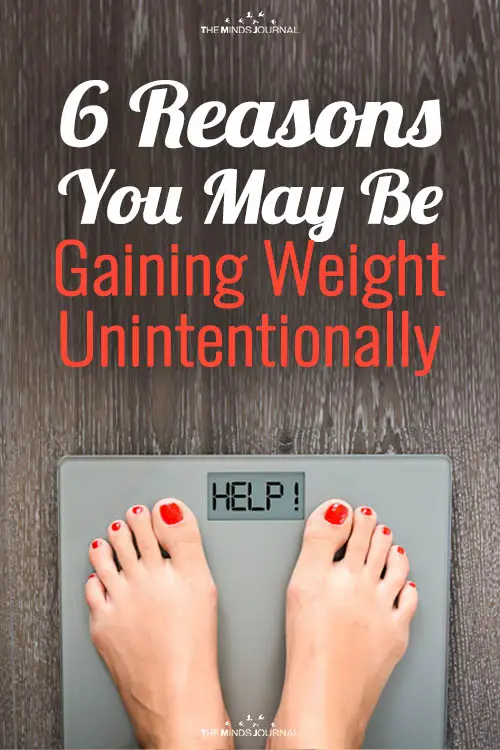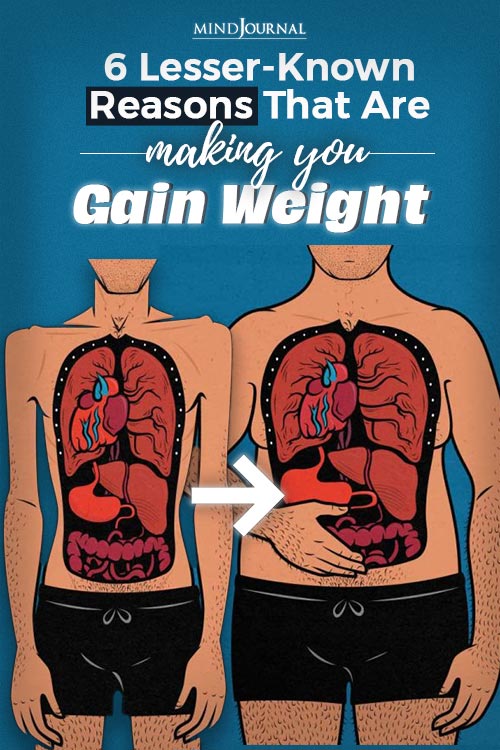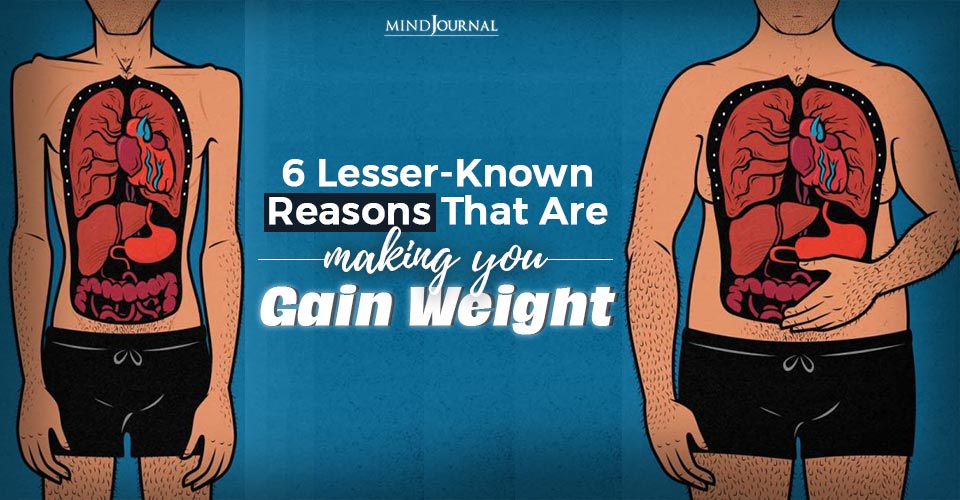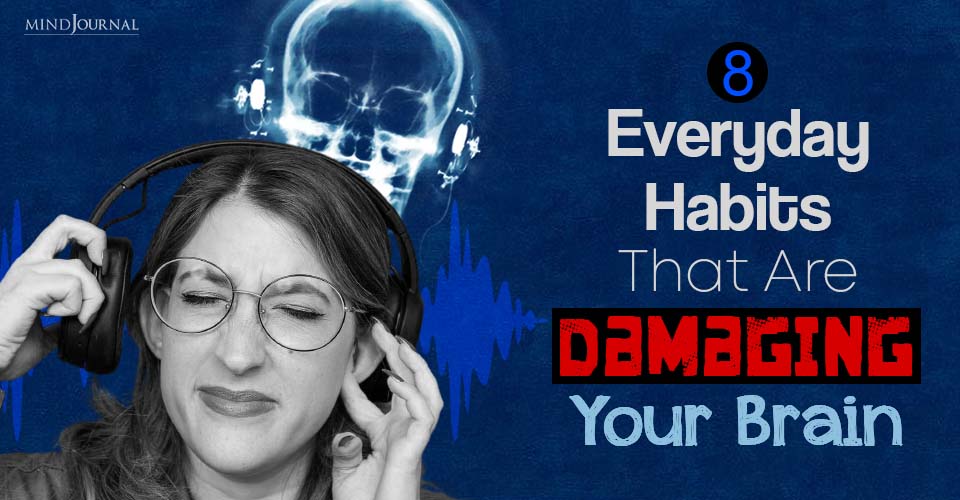Unintentional weight gain can be seriously frustrating. Although you try to have a balanced diet, you still can’t figure out why you keep packing on the pounds. It’s true that diet plays a crucial role in gaining weight, but there are many other factors that you need to consider.
The Weight Gain Pandemic
We, as a culture, are obsessed with our weight. Simply take a look at the range and volume of products available today to gain or lose weight. And with good reason. According to a 2017 study, over 2 billion adults and children suffer from being obese and overweight.
Here are some other key facts based on WHO global estimates:
- Obesity has tripled worldwide since 1975.
- In 2016, 650 million adults were found to be obese, among 1.9 billion adults who were overweight.
- In 2016, 13% of the global adult population, with 15% of women & 11% of men, were obese.
- In the same year, around 41 million children, below the age of 5, were obese and overweight.
- Around 39% of adults, with 40% of women & 39% of men, were overweight in 2016.
Related: Weight Bias in Healthcare: The Truth About Obesity

Obesity is undoubtedly one of the largest health problems today across the world. Weight issues can lead to a lot of health conditions like poor blood lipid profile, elevated blood sugar, high blood pressure, higher risk of heart disease, type 2 diabetes, etc.
With over 2 in 3 adults being considered obese or overweight, managing our weight might not be as easy as eating less & exercising more. All of us are unique and have different physiologies. Hence, our bodies respond to food and exercise in completely different ways. For a few of us, weight gain can be a result of illnesses & medications, for others it may be diet and lack of exercise, while for most others it may be a combination of different factors.
Causes Of Unintentional Weight Gain
Gaining weight is a complex process. Most of us tend to believe that obesity and being overweight is a result of excessive eating, laziness, poor lifestyle choices, and a lack of exercise. However, it is not necessarily true.
Here are some scientific reasons why you may be gaining weight unintentionally and becoming obese.
1. Genetics
Although factors like poor diet and lifestyle may greatly contribute to gaining excess weight, some of us are simply unable to deliberately control our eating habits. Overeating can be caused by a number of biological factors like hormones and genetics leading to being overweight.
A 2013 study by the New York Academy of Sciences, has found that genetics play a significant role in obesity. The research revealed, “Accumulating evidence has strongly implicated a genetic component playing an important role in the risk of becoming obese”
Evidence also shows that epigenetics is a determining factor in obesity as it causes weight issues from early life experiences. The paper stated, “Genetic variants, which confer susceptibility to obesity-related morbidities like nonalcoholic fatty liver disease, were also discovered recently.”
According to a Harvard Health article, your genes can be a prominent cause of your obesity and weight issues, if you possess these characteristics:
- Throughout your entire life, you have struggled with obesity and being overweight.
- Your parents and/or relatives are generally overweight. In fact, if both your parents are obese, then it is 80% likely that you will be obsese as well.
- You’re unable to lose weight even when you exercise regularly and follow a low-calorie diet in the long run.
Although genetic factors do not guarantee that you will be obese, it does increase your risk of being overweight than others. A 2011 study by clinical scientist Sadaf Farooqi, professor of Metabolism & Medicine at the University of Cambridge, discovered evidence that “genetic variation plays a major role in determining the susceptibility to weight gain”, even though environmental factors have also greatly contributed to gaining weight recently.
Related: 9 Proven Ways To Stabilize The Hormones That Cause Weight Gain
2. Calories
According to a Harvard Medical School publication, “On a very simple level, your weight depends on the number of calories you consume, how many of those calories you store, and how many you burn up. But each of these factors is influenced by a combination of genes and environment.”
The researchers found that the volume of calories stored in and burned by our bodies largely depends on the level of our physical activity, our genetic makeup, and our resting energy expenditure, that is, how many calories our bodies burn when at rest. So if we consume more calories than we expend, we will become overweight.
The publication noted, “Excess calories are stored throughout your body as fat… If you decrease your food intake and consume fewer calories than you burn up, or if you exercise more and burn up more calories, your body will reduce some of your fat stores. When this happens, fat cells shrink, along with your waistline.”
Another Harvard publication revealed that along with calories, consumption of lower-quality foods also significantly contributes towards gaining weight.
The study found that weight gain was strongly associated with the consumption of foods like potato chips, processed & unprocessed red meats, potatoes, added sugar, and sweetened beverages. Researchers discovered that intake of processed foods that have higher levels of fats, starch, sugars, and refined grains can directly lead to gaining excessive weight.
3. Carbs
Apart from the ‘calories in, calories out model of weight gain, certain other dietary factors can also have a significant impact on our weight as well. Other than the consumption of calories, intake of carbs may also play a significant role in weight management.
Recent studies have found that a low-carb diet, instead of a low-fat diet, might be the key to weight loss. Another new study shows that a low-carbohydrate diet can actually help people to not only lose a lot of weight but also reduce risk factors related to heart disease.
According to Dr. Lydia Bazzano of Tulane University in New Orleans, lead author of the study, “If you are overweight and have cardiovascular disease risk factors and haven’t had success on other diets, certainly a low-carbohydrate diet is worth a try.”
4. Sleep
Diet and exercise may be an “oversimplification” of the causes of obesity as there is a range of other factors like our gut bacteria, genetic makeup, stress levels, diet in childhood, and sleeping habits. Studies have found that there are “longitudinal associations” between being overweight and sleep duration.
Researchers have found that children tend to gain weight consistently when they don’t get enough sleep. However, the connection between less sleep and gaining weight among adults is not yet that clear, and further research is required.
Related: Insomnia 101: Causes, Symptoms Of Insomnia & How To Sleep Better
5. The human gut
Your gut might also have a crucial role to play when it comes to gaining weight and being obese. One study on the relationship between being overweight and the gut microbiota has revealed that the human gut plays “an essential role in the catabolism of dietary fibers.”
Although more human studies are necessary, animal studies have shown that microbial changes in the human gut could be a “possible cause of obesity”. Hence, a healthy microbiome can help you manage your weight and develop a physically fit body when coupled with a balanced diet and regular exercise.
6. Set point
Apart from all the above factors, our body weight may be fixed at a default “set point” which makes it harder for adults to lose (or gain) weight and manage it in the long run.
One study discovered that weight loss through diet is followed by various physiological changes that may lead to weight regain. This can be accompanied by “alterations in energy expenditure, substrate metabolism and hormone pathways involved in appetite regulation, many of which persist beyond the initial weight-loss period.”
What Should You Do?

When it comes to unintentional weight gain and obesity, various factors like hormones, genetics, medical conditions, sedentary activities, food addiction, poor sleep, poor diet, and even childhood habits can contribute greatly.
However, the information provided here should not deter or demotivate you from reaching weight loss goals and enhancing your health. Although we may not be able to control our genes or other aspects of our body, eating less and getting more exercise can be highly beneficial. But as we have seen, it’s not necessarily that simple.
Related: Ultimate Calorie Portion You Must Take For Weight Loss
So where does this leave you? The best way to go about it is to consult your doctor. Talking to a general physician can help you find out an effective way to manage your weight, even with a medical condition. Your doctor can help you develop a strategy that can work best for your health profile, lifestyle, and diet.
If you do plan on shedding excess weight and reducing your waistline, then working with a doctor and a dietitian can be the smartest way to move forward.









